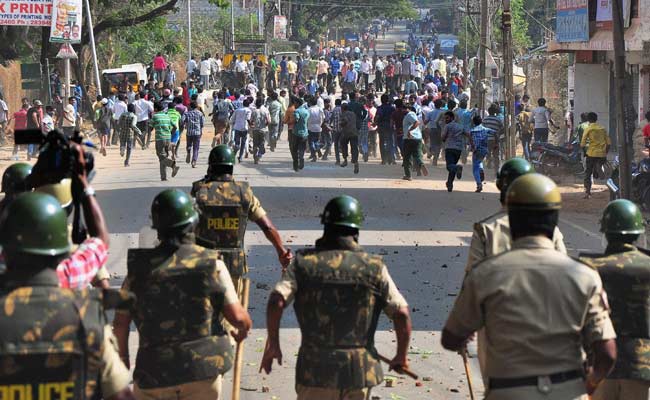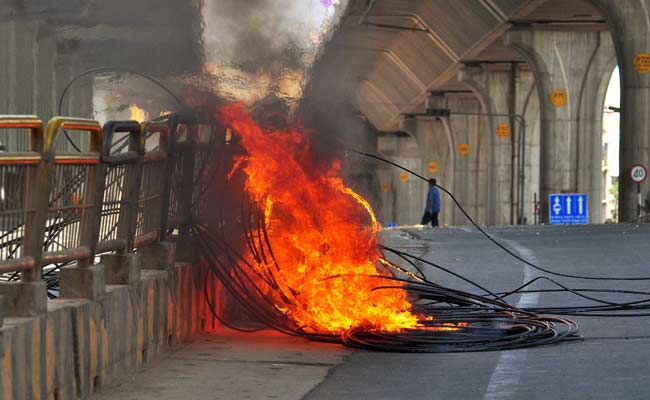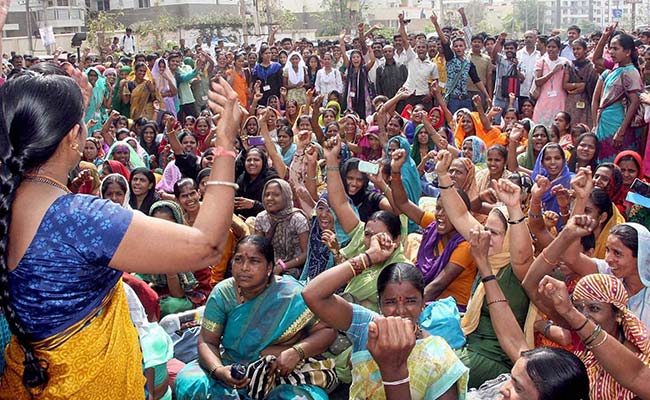What happened in Bengaluru this week, though, is different. On Monday, without warning, thousands of garment workers assembled near the city's garment hubs, blocked highway traffic for hours to protest against the union government's changes to the Employee's Provident Fund (EPF) withdrawal rules announced in this year's budget. It was unclear who their leader was, which organised group they were part of, or indeed what their specific demands were. While media reports suggested that they were incensed by the new EPF rule which delays withdrawal of the employers' contribution until after the worker turns 58, we did not hear a specific charter of demands. They did stone the local office of the EPFO to drive home their displeasure.

Thousands of garment workers in Bengaluru clashed with the police, angry with the government over a controversial new rule for provident funds, which has now been withdrawn (PTI photo)
Although trade unions and political parties have tried to sail their boats from the winds created by the protestors - by voicing their support and criticising the Modi government - it is likely that they are trying to derive mileage out of the situation they had little to do with. In response to public outcry, the Modi government has reversed its position.

Cables in flames after being set afire by garment workers during a protest rally over the EPF withdrawal norm, in Bengaluru (PTI photo)
We do not know all the facts yet, so what follows is an estimate based on current information. It is too early to tell how it happened, but to the extent that it is "leaderless", we should suspect that WhatsApp and SMS text messages have a role to play in bringing it about. As I've argued elsewhere, as the use of smartphones and social media gets widespread, people can mobilise faster, while drawing little attention until they are all on the streets. The Bengaluru garment workers might just be the latest demonstration of the politics of "radically networked societies".

The protesters also blocked traffic on the highway, causing five-hour jams in the IT city (PTI photo)
Those given to traditional thinking will smell a political conspiracy and credit this or that party with cleverly manipulating this incident. In my view though, this came from the workers directly and was made possible by an interplay between technological and human networks. IT and biotech workers are not the only denizens of Electronics City: employees of traditional industries, empowered by internet-connected smartphones live and work in the same place. Good political leadership can turn this into a force for greater democratisation, disintermediation and voice. Cynical leadership, on the other hand, can leave us with more blocked highways, burnt buses and vandalised buildings.
(Nitin Pai is director of the Takshashila Institution, a think tank and school of public policy. These are his personal views.)
Disclaimer: The opinions expressed within this article are the personal opinions of the author. The facts and opinions appearing in the article do not reflect the views of NDTV and NDTV does not assume any responsibility or liability for the same.


